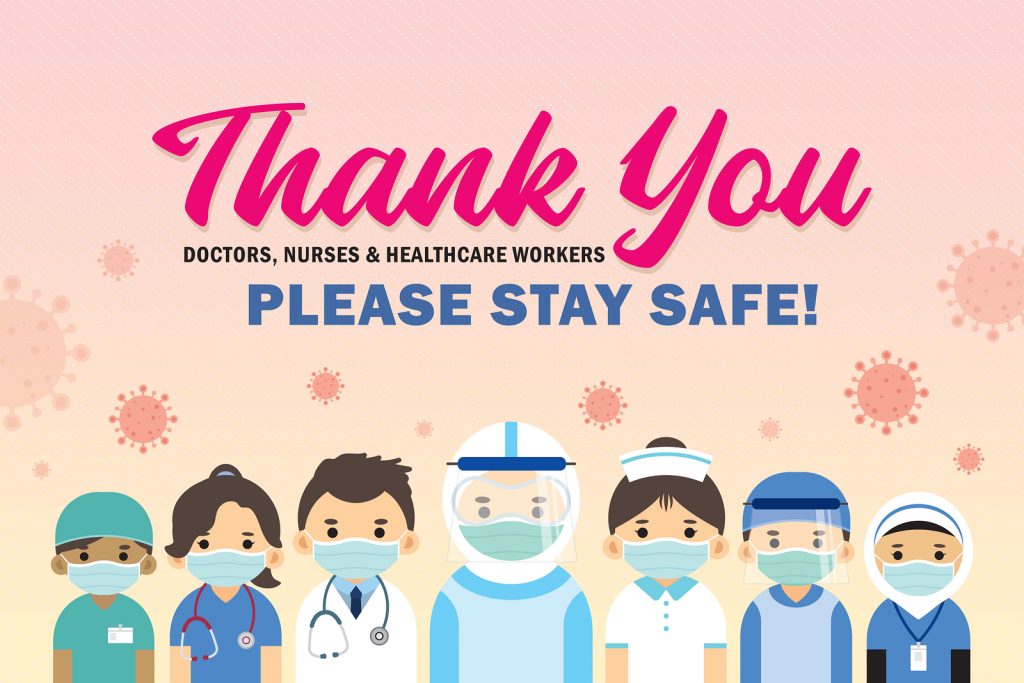How Medical Offices Are Dealing With COVID-19
Medical professionals throughout the United States are left dealing with millions of COVID-19 cases. With so many coronavirus cases it is difficult to believe there is any room left for other diagnoses. In any case, COVID-19 cases are treated with the utmost priority. In fact, these cases are immediately sent to isolation to protect non-infected patients.

Each medical facility and professional utilizes unique processes that heed the US Centers for Disease Control and Prevention (CDC). A list of the special steps physicians in the United States is taking to prevent the further spread of the coronavirus virus is listed in the content provided below.
COVID-19 Isolation
COVID-19 patients are required to go immediately to isolation when visiting a brick-and-mortar physician’s office and medical center. These patients are infected with a contagious disease that has contributed to more than 323,000 deaths in the United States alone. The CDC has combined efforts with physicians and medical centers nationwide to fight against the virus. Some progress is obvious, as the number of new cases has decreased drastically compared to 2020.
Doctors and hospital staff are required to send COVID-19 patients into isolation immediately upon arrival. This extreme effort is to slow the spread of the disease while protecting infected patients to the highest degree.
COVID-19 Education
Another important step is to teach COVID-19 patients about their conditions, focusing on the incubation period, treatment, and symptoms. According to the CDC, the incubation period for the virus can last up to 14 days in some patients. During the incubation period, patients are believed to be contagious for up to 10 days. The onset of symptoms is between four to five days. However, some patients will remain asymptomatic (no symptoms present) throughout the 14-day incubation period. A study showed that 97.5 percent of coronavirus patients reporting symptoms will do so within the first 11-1/2 days of the 14-day incubation period.
The CDC and American medical professionals believe education is key to slowing the spread of the virus. There has been some progress with the help of public awareness, which is why the CDC continues to encourage physicians to educate their patients and government officials to educate their community members.
COVID-19 – Potential Drug Interaction
Senior citizens and people with underlying medical conditions are at a higher risk of developing serious complications from the coronavirus. Patients with strict medication regimens are at a high risk of a drug interaction. These include sedatives, neuroleptics, antifungals, antidepressants, and antibacterials. This excludes patients who are undergoing HGH therapy. Learn more by visiting hghtherapydoctor.us
.
It is crucial patients keep their physicians in the loop with their medication regimens. Most coronavirus patients are treated with hydroxychloroquine and azithromycin (Zithromax). Azithromycin is utilized to treat a broad range of conditions, including middle ear infection (otitis media), laryngitis, tonsillitis, bronchitis, sinus infection, Chronic Obstructive Pulmonary Disease (COPD), and skin infections.
Head-To-Toe Physician Assessment
All patients are required to undergo a head-to-toe assessment by a medical professional. The assessment is necessary to help physicians determine if their patients are exhibiting COVID-19 symptoms prior to testing. This physical assessment is utilized in advance to medical testing, which entails PCR diagnostic test.
During the physical assessment, the patient is asked a series of questions regarding his/her condition. The questions are mostly geared toward the signs and symptoms of the coronavirus. The patient is asked if they are experiencing symptoms, such as a headache, nausea, body aches, cough, chills, weakness, difficulty breathing, and stuffy or runny nose.
Physicians are required to explain to their patients that not every COVID-19 case presents with all of the known symptoms. Most patients will not report more than a few symptoms. However, there are a few cases where patients claim to have all of the coronavirus symptoms.
Reducing Number Of Patients In Doctor’s Office
Doctors are also encouraging their patients to stay at home and contact their office via a landline. This effort to help reduce COVID-19 contamination among healthy and sick patients. Doctors are calling in medicine refills to local pharmacies in place of written prescriptions.
If you are someone you know is contagious with the virus, it is crucial to remain at home until your physician says otherwise. If you were recently exposed, you may develop the symptoms within the next week or so.

